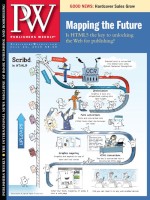Sisters Shange (For Colored Girls Who Have Considered Suicide/When the Rainbow Is Enuf) and Bayeza (The Ballad of Emmett Till) collaborated on Some Sing, Some Cry, a lush chronicle spanning 200 years of the Mayfield family.
How did the collaboration come about?
Ifa Bayeza: Zake had just done For Colored Girls and was very enamored of African-American women's roles in black music at the time. She invited me to brainstorm, so we sequestered ourselves in a hotel room, then put the project on a shelf for a very long time until Zake's editor saw it and suggested we work on it again. It's a multigenerational saga. We each wrote a section.
Ntozake Shange: I was interested in how the chapters were ultimately going to fit into one another in this whole story.
The characters all have very distinct voices and accents—both regional and of their time. What did you draw on to create these vibrant and distinct voices?
IB: Language shifts with each character and with time. We were so close that it was difficult to see the end result. A part of it was looking at sound, how sound and language traveled with people through time.
Music is such a huge part of the story. What was the inspiration?
NS: It seems to me, having written several novels, that sound is drawn into Negro conversation in church or in town hall. I can allude to those sounds that I was hearing as I was writing—a heavy man walking, or a lady of the night going by. There, sounds are intimations of character. If we didn't have music, we'd have no way of knowing what the history of our people would be.
Is that why song is the connective thread between the generations?
IB: Sound is the connecting energy to our African past. When thrown into the Middle Passage and the babble of languages, then given this foreign language, English, that had to be learned by ear in this foreign land, Africans, even though they spoke different languages, found a connection and an umbrella culture emerging from the different ethnic groups thrown together by the brutal rubric of enslavement.
NS: Like "Down by the River"; it's a baptism song, but it's also about meeting up, trying to escape. I think hip-hop culture is continuing this....
IB: ...and they're telling their own stories through rhythm and movement and voice, so it's transcending through the generations. I think our audacity, you know how our president talks about the "audacity of hope," well, our audacity is trying to trace the history of African-Americans through sound. African-Americans have left such a rich legacy in music that I got a whole new appreciation for both anonymous creators and legendary [ones].



 Volume 257
Issue 29
07/26/2010
Volume 257
Issue 29
07/26/2010





